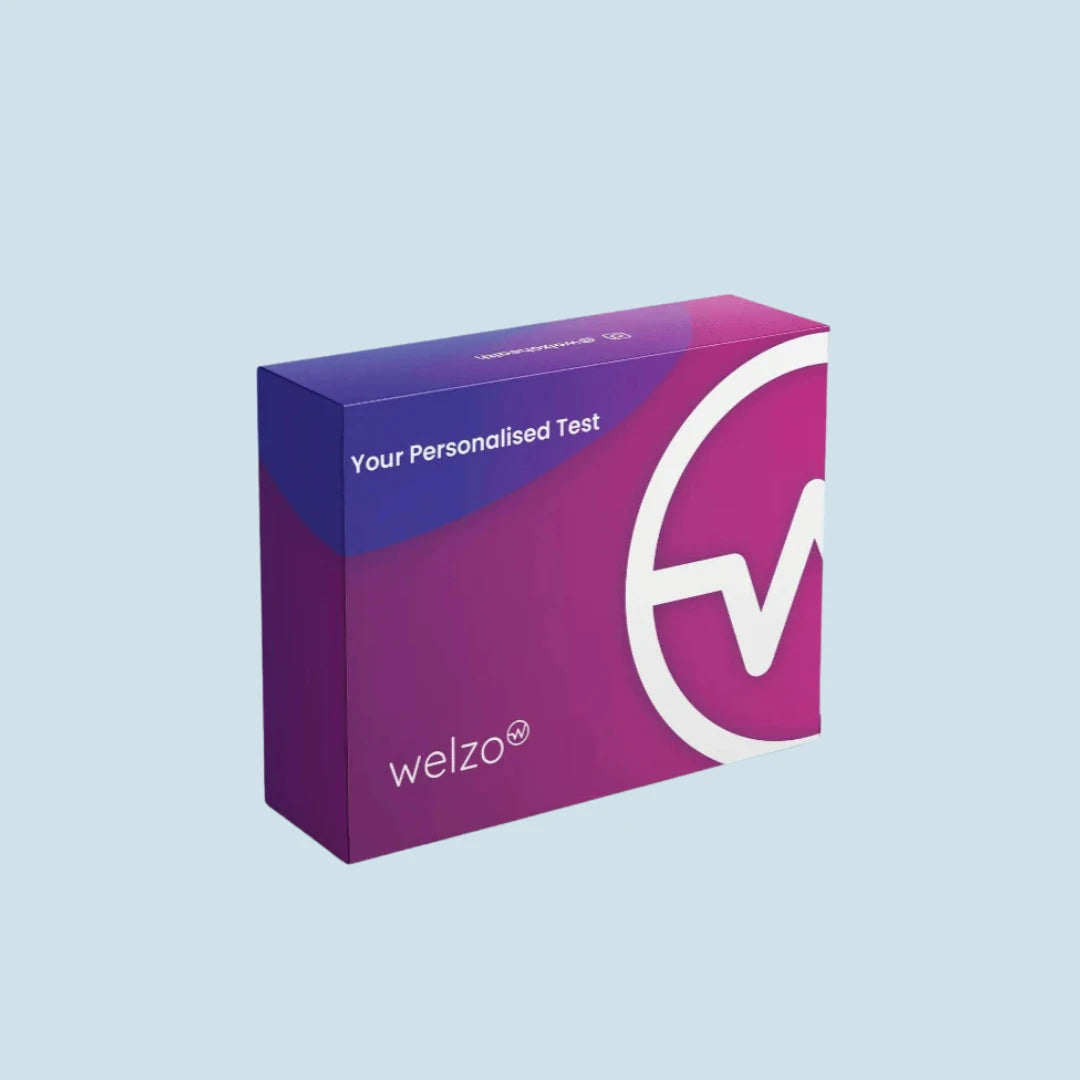What is a coeliac screen?


Related products
Coeliac disease is an autoimmune condition that affects people of all ages, often going undetected for years due to its wide variation in symptoms and severity. One of the most effective tools for identifying this condition is a coeliac screen—a series of blood tests designed to detect antibodies that signal the immune system is reacting negatively to gluten. Gluten is a protein found in wheat, rye and barley, and in people with coeliac disease, consuming gluten damages the small intestine, impairing nutrient absorption and leading to numerous health complications.
The preferred coeliac disease screening test today is the IgA anti-tissue transglutaminase (tTG-IgA) antibody test. It is often followed by the IgA anti-endomysial antibody (EMA) test, especially when a diagnosis needs confirmation. These tests are particularly important because many individuals remain asymptomatic or show only mild gastrointestinal issues, which may be mistaken for common digestive disorders. Additionally, IgA deficiency—a condition more prevalent in coeliac patients—necessitates the use of IgG-based tests to ensure an accurate diagnosis.
Screening for coeliac disease is not only essential for symptomatic individuals but also for at-risk populations, including those with a family history of coeliac disease, other autoimmune conditions, or unexplained anaemia or fatigue. With increasing awareness and improvements in diagnostic testing, more people are receiving timely diagnoses, allowing them to adopt a gluten-free diet and prevent long-term complications such as osteoporosis, infertility, or intestinal lymphoma. This guide provides an in-depth look at coeliac screening, including types of tests, how they work, and what they mean for those affected.
What is a Coeliac Screen?
A coeliac screen is a group of diagnostic blood tests used to detect coeliac disease by identifying specific antibodies in the blood. These antibodies, particularly IgA anti-tTG and IgA EMA, target components of gluten or the tissue enzymes affected by gluten. When someone with coeliac disease consumes gluten, their immune system overreacts and produces these antibodies, which can be detected through laboratory testing.
The primary purpose of the coeliac screen is early detection and diagnosis. This is especially important because coeliac disease can cause damage to the small intestine long before severe symptoms emerge. The most common antibodies tested in a coeliac screen include:
-
IgA anti-tTG (tissue transglutaminase antibodies)
-
IgA anti-EMA (endomysial antibodies)
-
IgG DGP (deamidated gliadin peptide antibodies) in those with IgA deficiency
-
Total serum IgA to assess for IgA deficiency
Because IgA deficiency can interfere with results, total IgA levels are measured first. If a deficiency is confirmed, IgG-based tests are used instead. It is important that patients undergoing a coeliac screen are still consuming gluten at the time of testing to avoid false-negative results. A positive coeliac screen typically leads to further diagnostic steps, such as an intestinal biopsy or video capsule endoscopy, to confirm the presence of villous atrophy—the hallmark of coeliac disease.
Testing can also be helpful in identifying related conditions that may occur alongside coeliac disease. For instance, lipid metabolism can be affected in long-standing undiagnosed coeliac patients. A reliable way to check this is through the Cholesterol Blood Test, which helps assess heart health and fat absorption—both of which may be impaired in those with nutrient malabsorption.
What is Coeliac Disease?
Coeliac disease is a chronic autoimmune disorder where the ingestion of gluten leads to an immune-mediated attack on the lining of the small intestine. Over time, this attack causes damage to the villi—small finger-like projections responsible for absorbing nutrients. The result is malabsorption, leading to a wide range of symptoms and, if left untreated, serious health complications.
People with coeliac disease may present with typical gastrointestinal symptoms such as:
-
Diarrhoea
-
Bloating
-
Abdominal pain
-
Flatulence
-
Nausea
However, many also experience non-digestive symptoms including:
-
Fatigue
-
Anaemia (especially iron-deficiency anaemia)
-
Weight loss
-
Joint pain
-
Skin rashes (dermatitis herpetiformis)
-
Infertility
The only effective treatment for coeliac disease is a lifelong gluten-free diet, which helps heal the intestinal lining and alleviate symptoms. Even small amounts of gluten can trigger inflammation and symptoms, making strict dietary adherence critical. Regular follow-up and nutritional monitoring are important, especially for those at risk of developing deficiencies in iron, calcium, vitamin D, and B vitamins.
Coeliac disease has also been associated with thyroid dysfunction, particularly autoimmune thyroiditis. If thyroid concerns are suspected, the Advanced Thyroid Function Blood Test offers a detailed overview of thyroid hormone levels and can help identify underlying autoimmune conditions.
Causes of Coeliac Disease
While the exact cause of coeliac disease remains unknown, a combination of genetic, environmental, and immunological factors is thought to contribute to its development. People with specific genetic markers—particularly HLA-DQ2 or HLA-DQ8—are more likely to develop the condition. However, not everyone with these genes will go on to develop coeliac disease, suggesting other triggers are involved.
Key contributing factors include:
-
Genetics: A family history of coeliac disease increases risk.
-
Gluten exposure: Particularly in early childhood or after a trigger event.
-
Immune system dysregulation: The immune system mistakes gluten and tissue transglutaminase as threats.
-
Environmental triggers: Such as gastrointestinal infections or changes in gut microbiota.
Events such as surgery, childbirth, severe stress, or viral infections may act as triggers in genetically predisposed individuals. Additionally, coeliac disease is more common in individuals with other autoimmune conditions like Type 1 diabetes, autoimmune thyroiditis, and Addison's disease.
Screening Tests to Diagnose Coeliac Disease
The following diagnostic tools are most commonly used to detect coeliac disease:
tTG-IgA and Total IgA Measurement
This is the most commonly used and highly sensitive blood test for detecting coeliac disease. It measures antibodies directed against tissue transglutaminase. It is best performed while the patient is still consuming gluten.
IgA Endomysial Antibody (EMA)
EMA testing is typically used as a confirmatory tool and has near 100% specificity. It is more expensive and used in complex cases.
Total Serum IgA
This is crucial to identify IgA deficiency, which can lead to misleading results in other tests.
IgG Deamidated Gliadin Peptide (DGP)
Especially useful in those with IgA deficiency and in children, this test detects antibodies against a modified form of gliadin.
While antibody and biopsy tests remain the gold standard, evaluating related hormonal markers can sometimes reveal broader autoimmune trends. The DHEA Sulphate Blood Test measures adrenal function and may support investigations where fatigue and hormone imbalance are present—symptoms common in undiagnosed coeliac patients.
Risk Factors and Associated Conditions
Several risk factors and health conditions are associated with coeliac disease:
-
Type 1 diabetes
-
Autoimmune thyroid conditions
-
Turner syndrome and Down syndrome
-
Unexplained infertility
-
Chronic fatigue
-
Family history of coeliac disease
Because inflammation is a common thread in autoimmune conditions, monitoring systemic inflammatory markers is also useful. The CRP Blood Test detects C-reactive protein levels, offering insight into low-grade inflammation that could be connected to coeliac symptoms or other overlapping disorders.
Radiological Assessments
In some patients, liver-related changes due to malabsorption may become relevant. For this, the Bilirubin Blood Test is a helpful tool to check for abnormal bilirubin levels, which can be influenced by both intestinal and liver health in the context of long-standing coeliac disease.
Conclusion
A coeliac screen is a vital tool in detecting one of the most common but underdiagnosed autoimmune disorders—coeliac disease. As awareness and access to testing have improved, more people are being diagnosed earlier, allowing for timely dietary intervention and prevention of serious complications. The screening process, involving a range of blood tests and possibly confirmatory procedures like biopsy or endoscopy, helps identify those at risk and ensure they receive the care they need.
Coeliac screening is not only for those with gut symptoms—it’s increasingly relevant for people facing unexplained fatigue, skin issues, and hormonal changes. Welzo provides an extensive range of testing options via its Sexual Health Tests Collection, where coeliac-related reproductive or hormonal symptoms can also be explored.
Moreover, the broader impact of post-viral conditions such as COVID-19 on gut and immune health has drawn attention to latent autoimmune disorders. For those recovering from viral infections or unexplained chronic fatigue, the COVID-19 Collection can be a valuable resource for comprehensive testing.
To explore all these options in one place, visit the Welzo Home Blood Tests page. With trusted UK labs and at-home convenience, getting screened for coeliac disease and related health concerns has never been easier or more accessible.


































 Rated Excellent by 26,523+ Reviews
Rated Excellent by 26,523+ Reviews